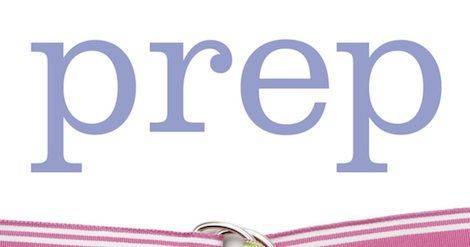
The Closest Thing I Have to a Diary is an Old Copy of PREP
I’m supposed to be keeping a diary. If you want to write, you have to journal, that’s what people always say.
Growing up, I collected empty books to use as journals. Composition notebooks, yellow legal pads, and beautifully-bound tomes gifted by well-meaning adults littered my childhood bedroom. They were proof that I tried. But I never stuck with it beyond the first few pages. I kept giving up after three or four half-hearted entries, canned musings about crushes and friendship. My heart simply wasn’t in it.
When I want to look back on my adolescence, I pick up my copy of Prep by Curtis Sittenfeld. It’s the closest thing I have to a journal. Sittenfeld’s debut novel about a Midwestern girl at an elite New England boarding school bears little resemblance to my actual life. But I felt a connection to it almost immediately. I remember eyeing the jacket at Barnes & Noble when the book first came out in hardcover, waiting until the paperback came out before I finally bought it with a gift card.
Today, the cover peels away from the binding, worn down from repeated use. When I turn the pages, which are beginning to yellow, I am tunneled through history. Sixteen again, running my pen beneath a salient phrase, waiting for the bell to ring before class.
My phase of underlining favorite passages in books didn’t last; Prep is the only one I ever marked so heavily. But I’m grateful for whatever impulse lead me to mar the pristine pages. Now I have a record from the time in my life when that story was fresh, before I knew it backwards and forwards. Better yet, it reminds me of who I was when I read it for the first time.
Many of the underlined excerpts hit me with the same emotional weight as they did back then: “This was always the time of day I felt the saddest, when I most believed my life should be something other than what it was, and the music compounded the feeling.” Others lack the emotional weight they once had: “I never argued against absolutes.” Either way, I love revisiting them.
Prep is not a record of my life, of course. It’s fiction. Yet the narration is full of my thoughts, even if they didn’t originate from me. Lee Fiora reminds me of my past self in myriad ways. She’s not a bad person, but she’s passive to a fault. She wants many things, but she lacks agency. She waits for life to happen to her. And when she does do something, the results are often less than ideal. Though the details of our biographies differ—I didn’t go to boarding school, for one—she’s me as a teenager in all my petty, judgmental, well-meaning glory. Sittenfeld’s book feels, at times, like a truer account of my high school experience than I could’ve written. Especially back then.
A decade out of high school, I finally understand. I never needed a diary to help me remember. All I have to do is peel back the cover of Prep, inhale the scent of aging paper, and start reading.














